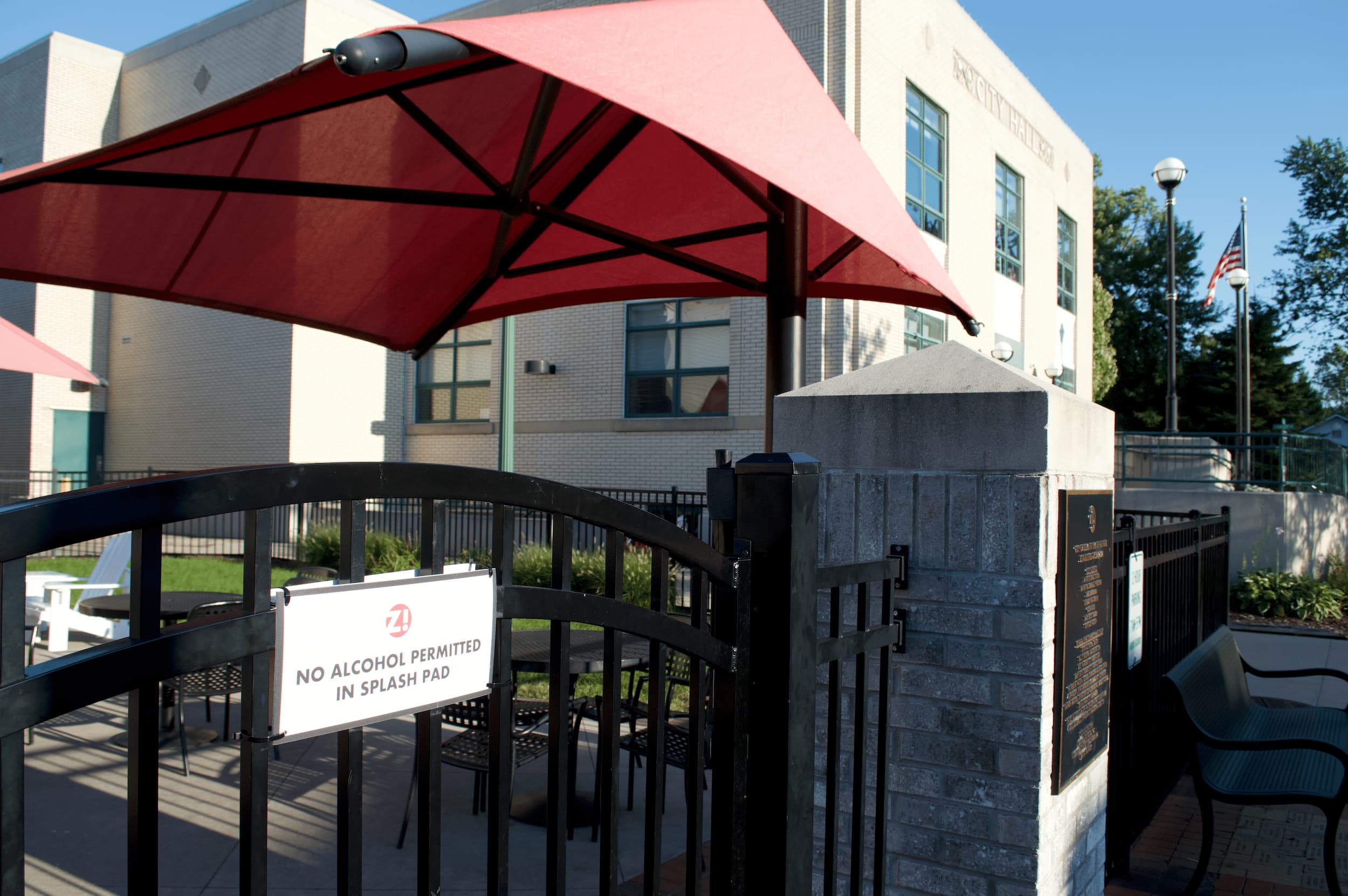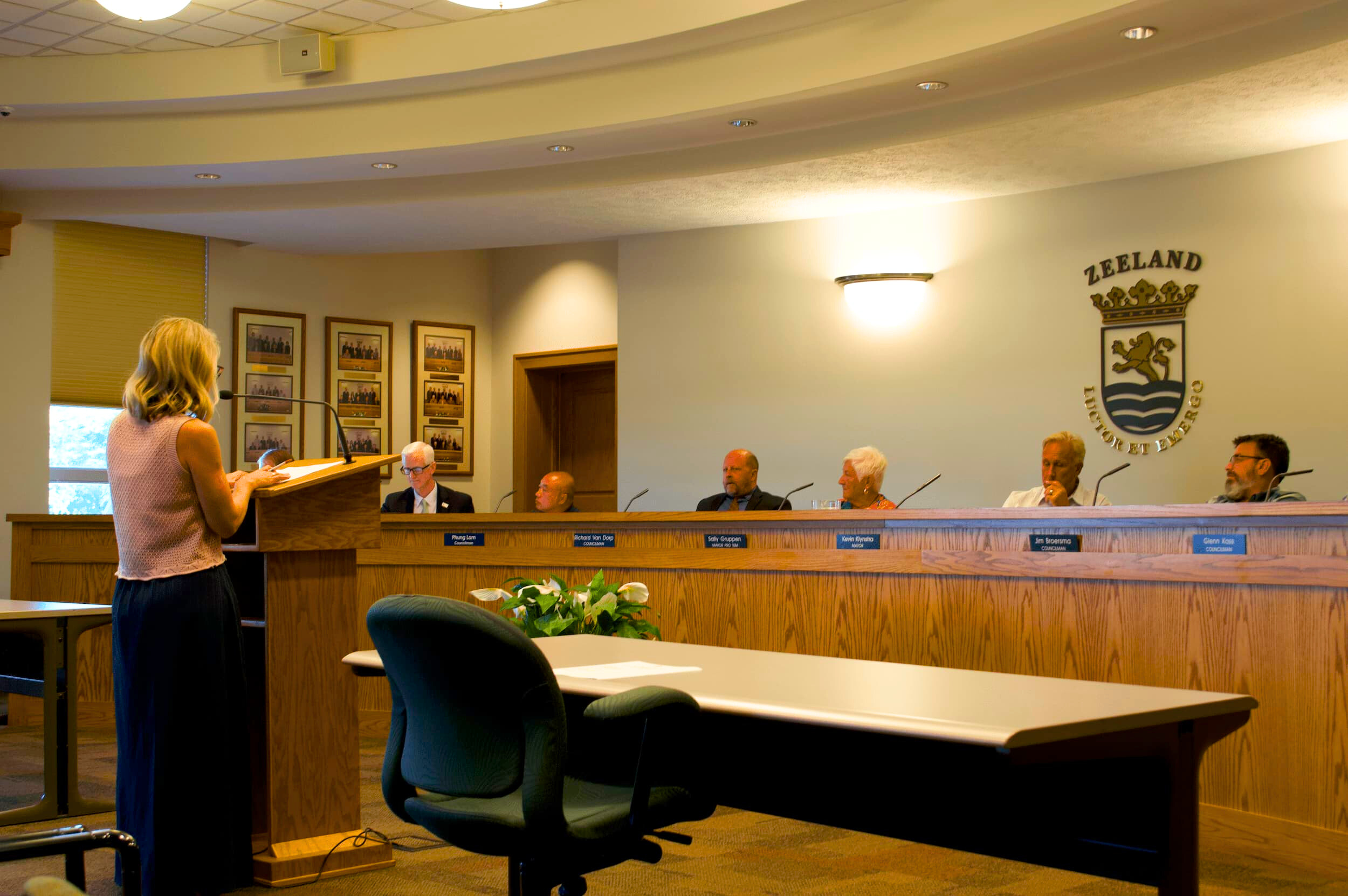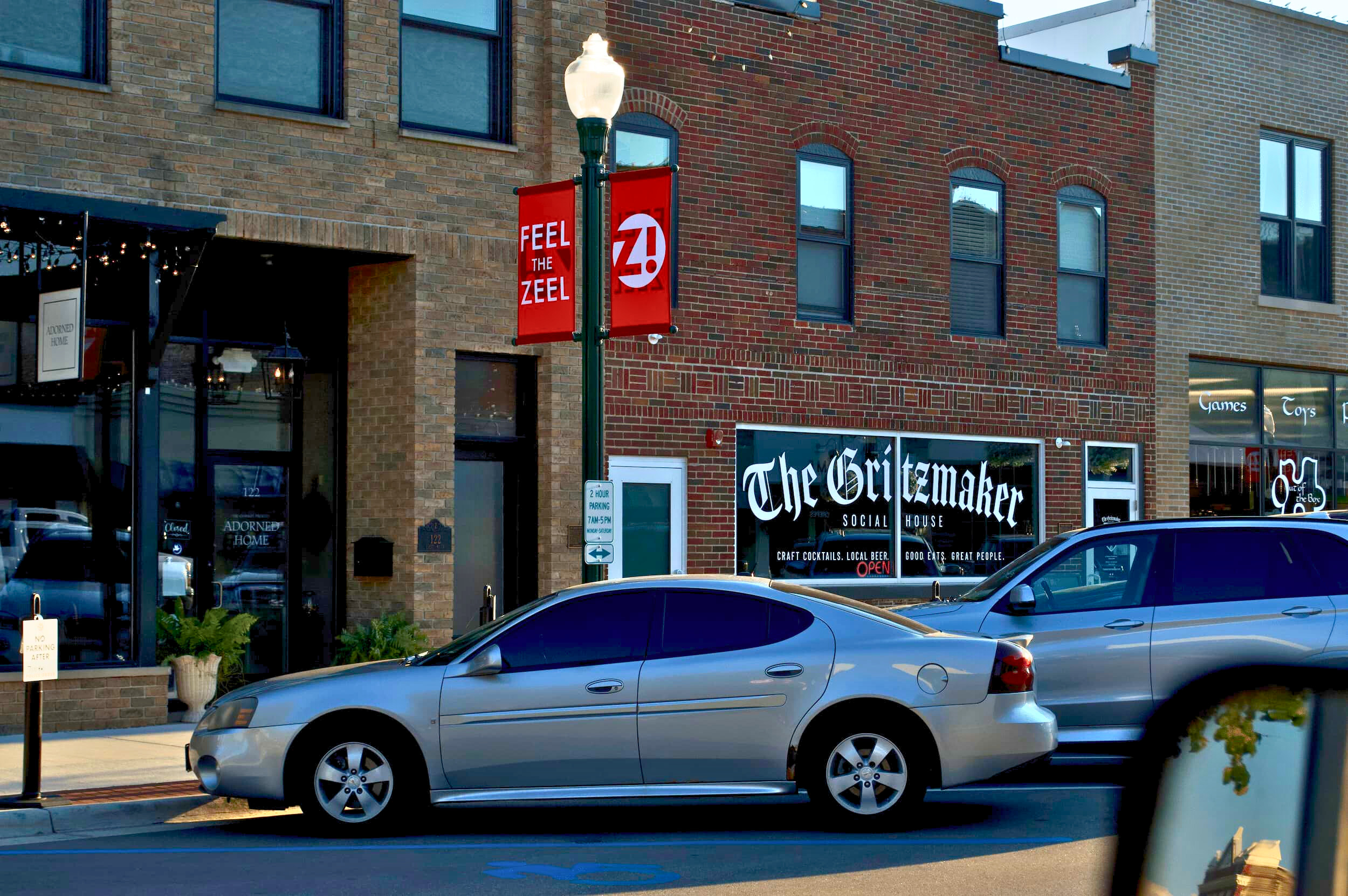

Sally Gruppen was the first woman to ever be elected to the Zeeland City Council and has served for 32 years. Having grown up in Zeeland, Gruppen “loves this community and loves to serve.”
To understand the importance of the Sunday alcohol sales decision, Gruppen said you really have to understand Zeeland and its history.
Established in 1847, Gruppen said that Zeeland stayed in the Dutch mentality for many, many years, far longer than the City of Holland. The Dutch people of early Zeeland were wonderful craftsman and “good every day, very Christian people who loved family, very family oriented. If you had guests over and wanted a bottle of wine, you went two miles outside of Zeeland to pick up a bottle.
Guidelines around alcohol sales weren’t written into early city ordinances because there was no need. It wasn’t an issue.
Gruppen loves that the founders, the Council, and the community, together have created a pleasant place, and that they've been able to maintain that for so many years. “Sure, it’s changing,” she said, explaining that people who come to Zeeland to work often fall in love with the city and move in as soon as something is available. And some of the new people want things that they consider comforts of home. “They want bars downtown," Gruppen said, "which is just foreign to us. But we’re trying to make it a collective place to keep that balance.”
In 2006, when alcohol sales in Zeeland still were prohibited, a couple of the local manufacturers came to the Council. They asked if there could be a downtown restaurant to take their clients for lunch and a glass of wine. They weren’t asking for unlimited alcohol, just to be able to have a glass of wine. “That’s how the whole conversation started in 2006,” Gruppen said. “I understood the request, and I thought they had the perfect right to ask.” The Council members agreed to work on it and listen, but that they did not want to have a bar.


200–300 residents attended those meetings regarding the Monday through Saturday alcohol sales. With some residents for the alcohol sales and some against, the community was split. Gruppen said the Council had the authority at that time to make the decision but decided not to. Instead, the issue was brought to a public vote.
The 2006 proposal passed by 40 votes. 1425 favored alcohol sales, 1385 did not.
Gruppen said the narrow margin was not a surprise. The Council’s goal was to make sure that everybody had a piece of what they wanted without changing the character of the city. Once the vote passed, the Council put together a community group to write the ordinance. It was decided that liquor license holders would be required to have 40% of their earnings come from alcohol and 60% come from food, with an audit being done every January. The ordinance also outlined “strongly” that there would be no liquor sales on Sundays.
Not one restaurant protested the ordinance stipulations, according to Gruppen. Instead, the restaurants and the residents were “wonderful. In the 18 years since the vote passed, there’s never been a problem," Gruppen said. "It’s been peaceful. It was done right."
But a new restaurant came to town last year, The Gritzmaker, and raised the alcohol question once again.
The owners of The Gritzmaker need to build their business. They’ve been asking for the right to sell alcohol on Sunday because they want to do champagne brunches for families and show football games in the afternoon.
Gruppen said that the Council is proceeding slowly and thoughtfully, recognizing that The Gritzmaker is the only restaurant making the request. If a Sunday sales proposal were to pass, it would again, according to Gruppen, “push the envelope.” Even so, she’s not for or against it. Rather, she wants the city to come together again to decide.
“Have we changed that much? Is this what collectively will be best for this city? Can we still be this beautiful, small town, keep our character, and elevate families? Because that’s where my heart is.”
Gruppen has some additional questions to consider: How do we honor the people who took their time to help write the ordinance in 2006? Would a Sunday sales proposal mean going back on the promise and our commitment to uphold what they wanted in the ordinance? And what about the people who were invited to move here and then came because they love the community and the quiet Sundays?
She reasoned that staying open on Sundays and serving alcohol is not the magic pill for restaurants. If it were, the handful of restaurants in nearby communities that served alcohol on Sundays wouldn’t have closed. The other Zeeland restaurant owners (who aren’t requesting an additional day of alcohol sales) "love having their Sundays off to be with their own families. They have no intention of making changes even if we voted for Sunday sales. That doesn’t fit in their lifestyle right now,” Gruppen said.
And to those on the outside of the community looking in, Gruppen explained about the hesitancy toward alcohol sales. “It’s not because anybody is a prude or anything. It’s just how we have existed. There’s a certain pride in Zeeland because we are a little different. There’s a pride with living here because it’s us. We don’t have to live like everybody else. We’ve been a good community, one that says, ‘bring your families and come enjoy life with us.’"
Gruppen said that "wonderful young people" are coming to Zeeland because they like to raise their children in a small community that is safe. "We have all these great things on Sunday. People go to church in the morning, come home, have a big meal, dads usually take a nap..."
"Having one day that’s more special—a family day. That’s how I was raised, and I think I was raised well. This is how we’ve always been. We haven’t needed that seventh day of excitement.”
Gruppen added that she’s not sure how she’ll vote. She wants to hear from the community.
“Come to the public hearing. I’m hoping people will come out and share their heart, because they do have a voice in this."
The public hearing will be held at City Hall on October 20, 2025, at 7 pm.

Krista Yetzke is a native of Ottawa County. A jeep-driving, guitar-playing wife, mom, and everyday adventurer, Krista was raised on the love of Jesus, the great outdoors, the arts, the value of frugality, and the beauty of food as medicine.